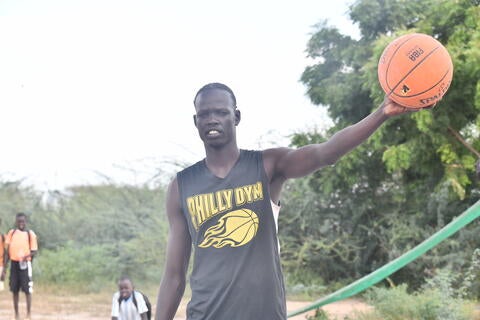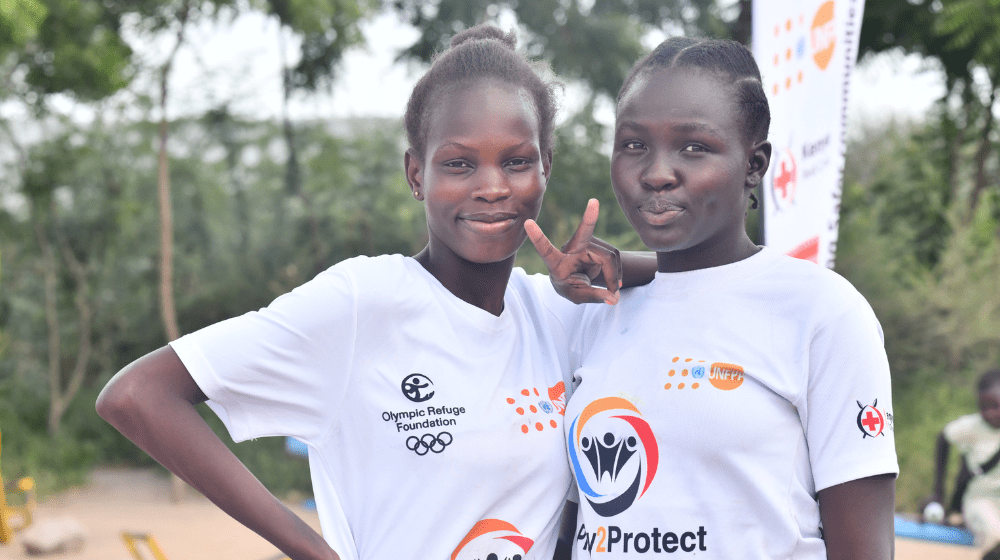In the heart of the Kalobeyei Integrated Settlement, a refugee camp located in Turkana, a county in Kenya’s northern region, a group of young refugee girls gather for a game of basketball. Once seen as a men-only sport, the girls are shunning societal expectations to demonstrate their passion and prowess in the game.
Among the players is Marline Abas, an 18-year-old from South Sudan, who now lives in Kalobeyei. After experiencing the trauma of conflict and displacement, Marline found solace on the basketball court, thanks to the Play2Protect project, an initiative of UNFPA supported by the Olympic Refuge Foundation.
“I have always been interested in basketball but had never had the opportunity to play as our school did not have the facilities,” says Marline. As part of outreach among adolescent girls in the refugee settlement, Marline was invited to join a basketball team that not only coaches young women and girls to be the best on court but also imparts critical life skills to safeguard against gender-based violence.

confidence both on and off the court.
"The coaches and mentors teach us about healthy relationships, consent, and how to protect ourselves from gender-based violence. I know the right procedures for reporting such cases in the community and how to respond when someone needs help,” she shares.
Thok Pal is one of the coaches training girls under the Play2Protect initiative. As a refugee living in the Kalobeyei Integrated Settlement, Thok has found his purpose in shaping young lives through the game. He has been trained to incorporate life skills and gender-based violence awareness and education into his coaching sessions, turning the game into a tool for empowerment and protection. "These girls have faced so much adversity in their lives," he explains. "Basketball gives them a safe space to express themselves, make friends, and learn valuable life skills. I have made it a routine to always include a session in our practice to have these crucial discussions."

awareness sessions when mentoring young refugee players in
Kalobeyei Integrated Settlement.
The impact of the Sport for Protection program extends beyond the basketball court. By engaging the community through colorful and competitive sports events and sensitization campaigns, the initiative is challenging harmful gender norms and promoting positive change. "When the girls see their peers playing basketball alongside the boys, it challenges stereotypes and also inspires confidence and aspiration among young girls like Marline," says Thok.
For Marline, the program has been life-changing. "Basketball has given me a sense of purpose and hope for the future," she says. "I want to continue playing and hopefully play in the major leagues one day, so I can inspire other refugee girls to pursue their dreams."
The project has so far reached 35,194 adolescent girls, young women, and boys in the Kakuma Refugee Camp, Kalobeyei Integrated Settlement, and host communities in Turkana West Sub-County with gender-based violence prevention information and response services.
“Our collaboration with the Olympic Refuge Foundation and partners working in the humanitarian field has been instrumental in leveraging sports to improve the well-being of young refugees,” says UNFPA Humanitarian Specialist John Wafula. “We have been able to exceed our target for this project and reach a larger number of adolescents and youth with life-saving protection information and skills that will carry them into adulthood.”


